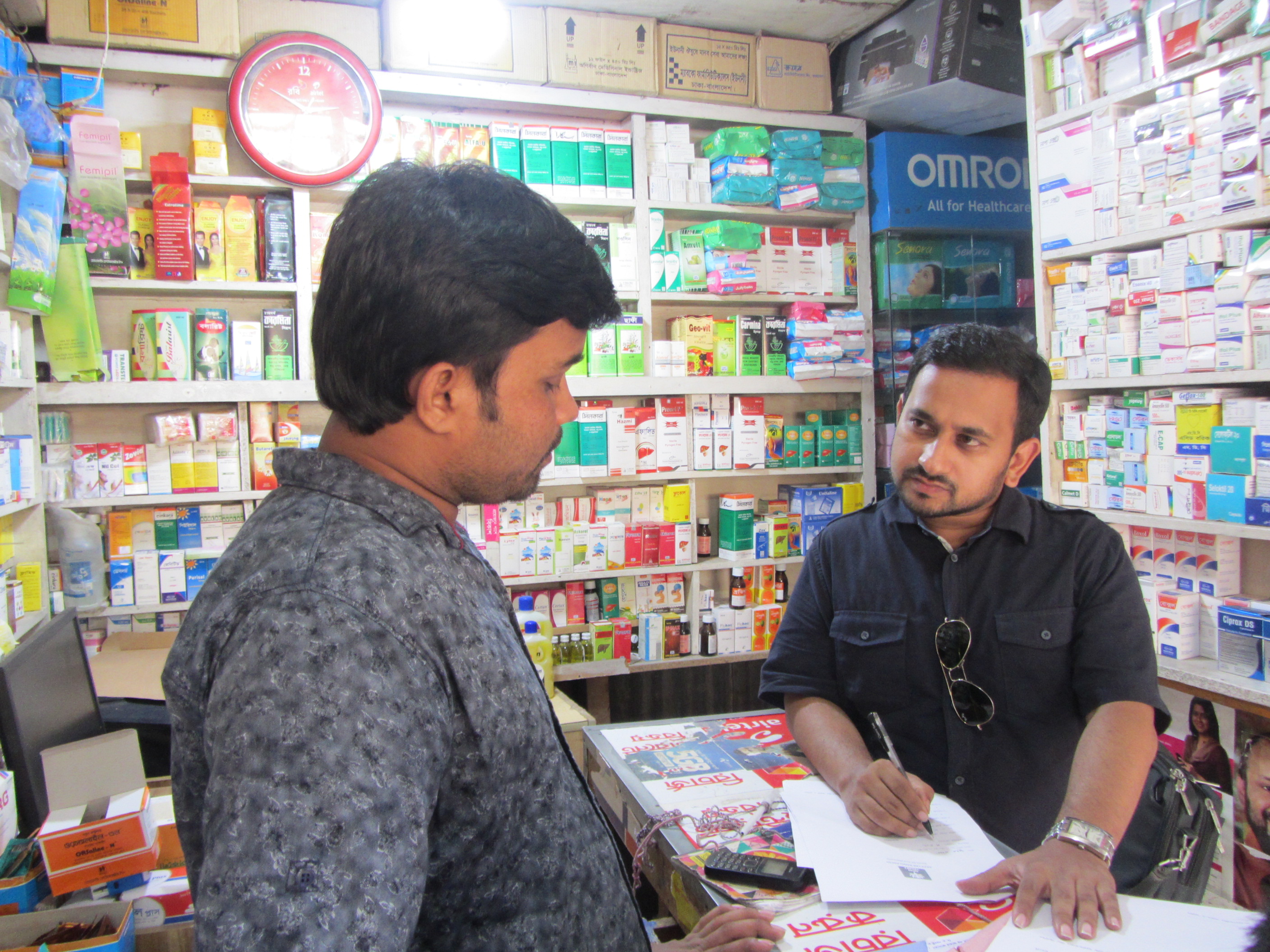Pharmacy aims to provide a training module to drug dispensers in Korail, one of the largest slums in Dhaka, where most of the people are illiterate and living in poverty. With low accessibility to healthcare, they are heavily dependent on over the counter medicines for common ailments. However, most dispensers are untrained, resulting in patients receiving the wrong advice. The project, which has already worked with 50 drug sellers, covers pharmaceutical and first aid training, nutrition, public health, chronic health conditions and physiotherapy.
When Mohammad Arifur Rahaman’s uncle died after being mis-prescribed medicine for his joint pain, it was a trigger for the entrepreneur to do something to prevent other needless tragedies.
Unfortunately, his story is not unique. In the poorer areas of Bangladesh’s sprawling capital, many people rely on local pharmacies for primary health care. But often the pharmacists are not adequately skilled, resulting in patients receiving the wrong advice - or worse.
“In Bangladesh there is no organisation providing this type of training to develop the skills and knowledge of local drug sellers especially in slums and other underprivileged areas. Only the government is providing broad-scale pharmacy training and it is very expensive,” says Mohammad.
His business idea will provide a cost-effective training module to drug dispensers in Korail, one of the largest slums in Dhaka, where most of the people are illiterate and living in poverty. With low accessibility to healthcare, they are heavily dependent on over-the-counter medicines for common ailments.
The pharmacy training module has been designed and updated by doctors. It has been tested over several training sessions and received positive feedback and ideas for further improvement.
The module offers a holistic approach to wellbeing and covers pharmaceutical and first aid training, nutrition, public health, chronic health conditions, physiotherapy as well as appropriate referral advice.
Already a successful entrepreneur, with considerable experience of market analysis and branding, Mohammad’s business model is based on a charging a consultancy fee for training, a fee for the module itself and branding opportunities for pharmaceutical companies.
The business will directly generate employment for five to six people. He hopes to expand the project to include an online web platform for distance learning and video modules.
“I am seeking to establish a better healthcare system in Bangladesh especially for underprivileged people, which can also generate good revenue,” he says.
More Details About The Innovation
Problem: People living in informal settlements in Dhaka have low levels of accessibility to healthcare and rely on local, untrained dispensers for advice and medicine for common ailments. This results in misdiagnosis, which can have fatal consequences.
Solution: The aim of the project is to develop the knowledge and skill of local pharmacists as a primary healthcare resource, as well as to enable them to refer serious conditions to doctors and hospitals.
Current status: A training module has been developed and refined with feedback. Fifty untrained drug sellers in Korail have received training to provide primary health care support. The project has been supported by Udhvabani Lab.
Business model: Consultancy fee from training session. Training module fee Income generation through branding opportunities for pharmaceutical companies.
Proposition: Investment and partnership sought to scale up business US$ 70K over the next three years for:
- Research and development of the training module
- Online web platform for distant learning
- Branding and promotion
- Video module
- Establishing a training institute
Prospects: Increase number of trained drug dispensers to improve primary healthcare and prevent misdiagnoses. In the pilot training, 80% of participants said the project would benefit both the pharmacy business and community.
About the Founder: Successful entrepreneur in tourism and travel with long-term experience of market analysis and branding.
Endorsements: Dhaka Community Hospital Trust (Leading Partner)
Contact: depplabbd@gmail.com
Read more about other innovations from the DEPP Innovation Labs.

